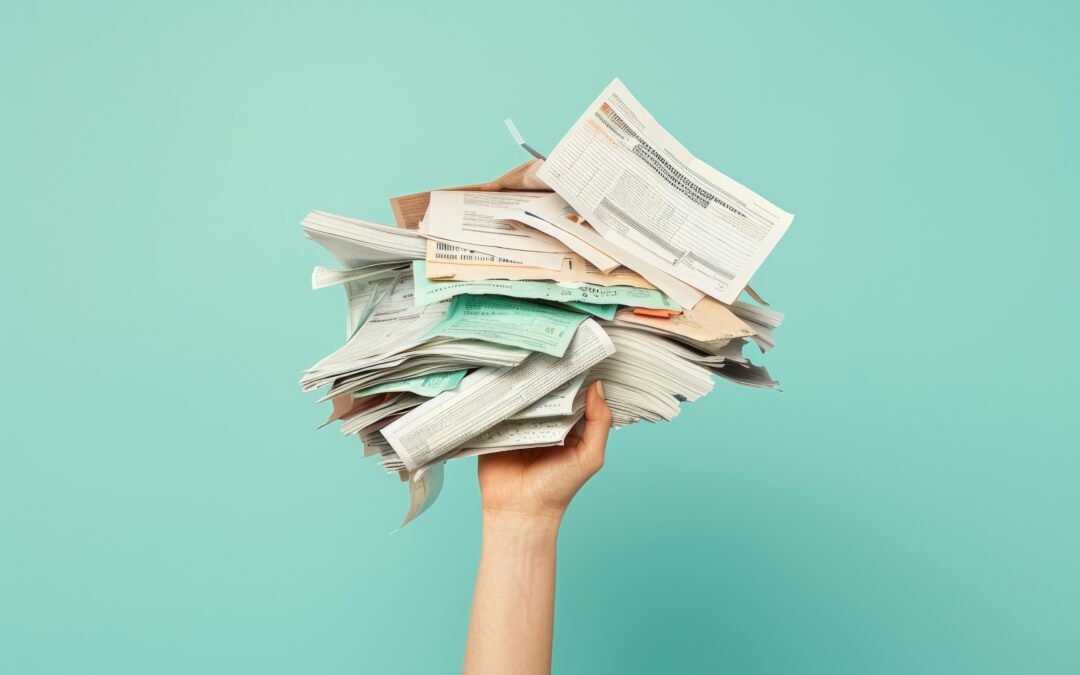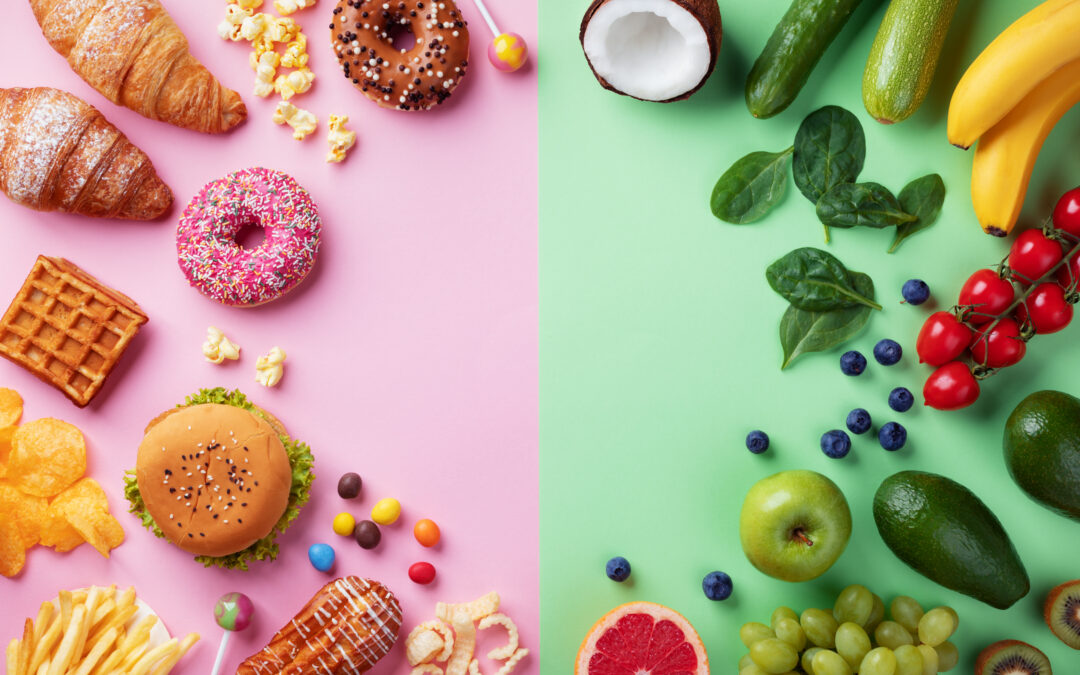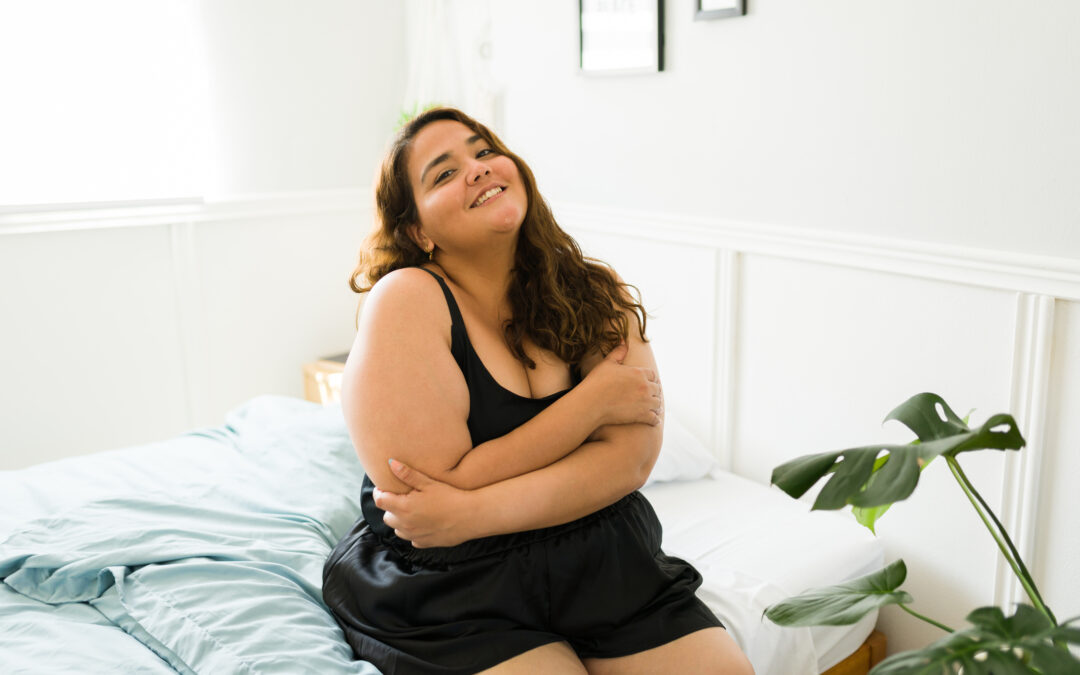We often find that when our clients first come to us for support, it’s clear to us that they have a disordered relationship with food. More often than not, they don’t realize this because of how common these behaviors are in today’s society. Unfortunately, the society we live in today praises thinness, disordered eating, and dieting so it’s easy to think the following signs are “normal”.

What’s the difference between disordered eating and an eating disorder?
Disordered eating sits on a spectrum between normal eating and eating disorders. Sometimes, disordered eating may include symptoms and behaviors associated with eating disorders, but with a lower frequency or severity.
Having disordered eating behaviors is NOT the same as having an eating disorder. For an eating disorder diagnosis, you must meet certain criteria and be diagnosed by a mental health professional. If you suspect that you may have an eating disorder, we highly recommend speaking to your healthcare provider or reaching out to the NEDA Helpline for support. Disordered eating habits, on the other hand, may exist in the absence of a specific eating disorder diagnosis.
I know it sounds a little complicated…but bear with me!
Disordered eating is defined as “a range of irregular eating behaviors that may or may not warrant a diagnosis of a specific eating disorder” as per the Academy of Nutrition and Dietetics.
Each eating disorder (anorexia nervosa, bulimia nervosa, binge eating disorder, etc.) on the other hand, has its own set of definitions and criteria. While disordered eating habits may be different from eating disorders, that doesn’t mean they are any less serious! Disordered eating habits can be just as severe and should be treated as such.
Here are 6 signs you might have a disordered relationship with food:

1. You think about food 24/7.
Take a moment and ask yourself – how much of the day (as a rough percentage) do you spend thinking about food? Food preoccupation can look like frequently asking yourself questions about what you’re eating, when you’re eating, how many calories are in the food, and more. Reflect on your percentage – is it more than you expected? Thinking about food 24/7 is a sign that you’re not giving yourself adequate nutrition.
2. You are noticing increased anxiety around food.
Increased anxiety around food can look different for everybody. Some thoughts you may find yourself having include but are not limited to:
- How do you feel about mealtimes?
- What if the food wasn’t prepared by you?
- What if you didn’t know the calories in the meal you were eating?
- What if the meal/snack was more calorie-dense?
Take some time to think about and reflect on your emotions. Where do you think they’re coming from?
3. You have rigid rituals or rules around eating that may be disordered.
Shame, anxiety, guilt, or obsessive feelings about food can lead to self-imposed rules such as eating foods in a specific order, cutting foods into small pieces, using smaller plates or utensils, or using excessive condiments to make food less appetizing. Other food rules include: Not allowing yourself to eat past a certain time, only allowing yourself to have “fun foods” on the weekends, only ordering a salad when you go out to eat, etc.
4. You are avoiding certain foods or cutting out food groups.
Removing certain types of foods or entire food groups only increases food preoccupation and your anxiety around eating food in general – which can ultimately backfire if your overall goal is improved health. For example, people with disordered eating may become obsessed with new diet trends or dietary restrictions (i.e. “all carbs are bad”, or going on a gluten-free diet if you’re not gluten intolerant).
5. You are starting to avoid social gatherings.
Do you find yourself isolating yourself or declining plans because you’re afraid food will be involved? Maybe you’re unsure of what food will be there and that makes you anxious. If this is the case, it could be a sign that you have a disordered relationship with food. Remember: Food is much more than just fuel for our bodies… food is also used to create meaningful connections and experiences with those who love and support you!
6. You feel the need to compensate after eating food.
Take some time to ask yourself if you have any urges to compensate after eating. Compensation can look like: over-exercising, restricting during your next meal or the next day, fasting, misuse of laxatives or diuretics, purging, only allowing yourself to eat “healthy” foods after, etc. Remember, all foods fit, and you shouldn’t feel the need to compensate after eating them!
If you see yourself in some of the above statements, remember that it’s OK. You are not alone.
As cheesy as it sounds, recognizing the problem is the first step. For more disordered eating support, we invite you to reach out to us to see how we can help. Our individualized services are here to help support you wherever you are on your journey with food.






0 Comments